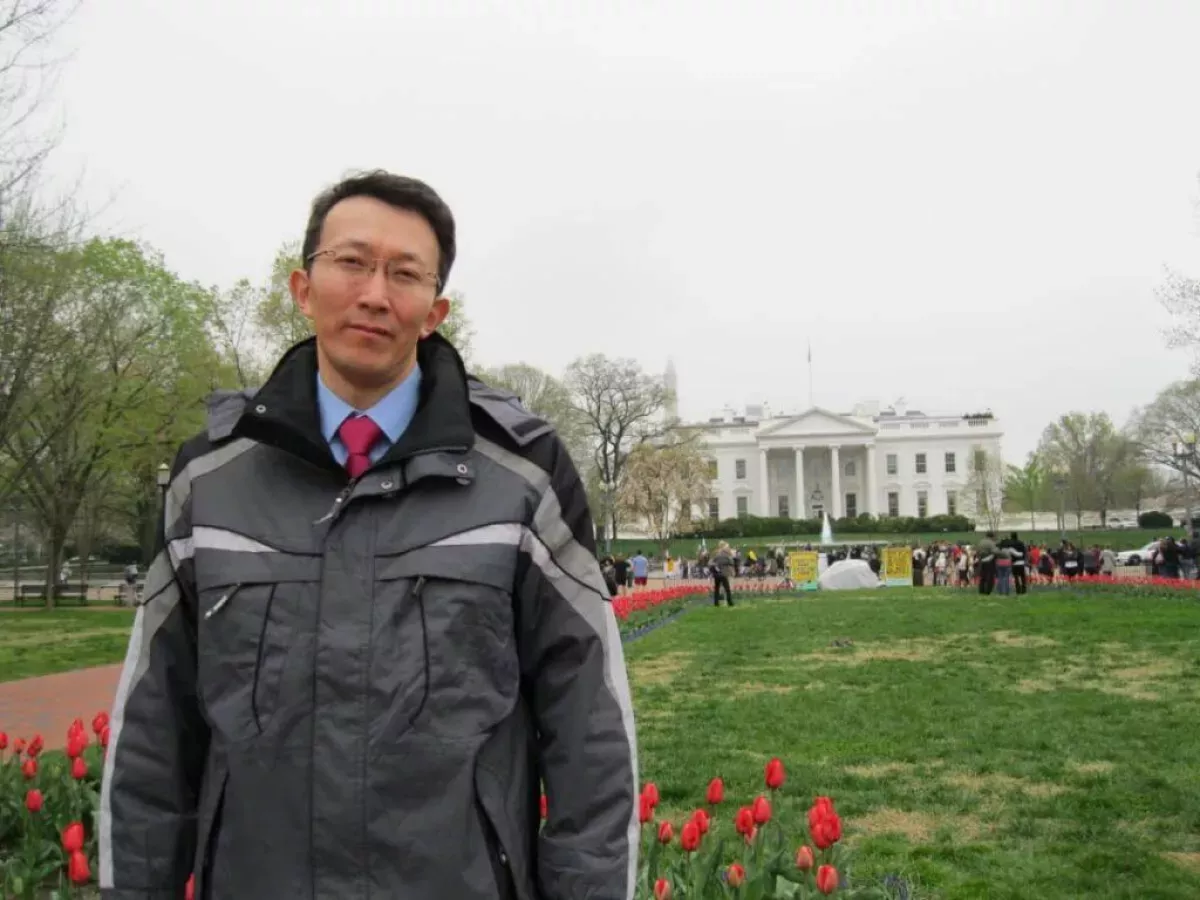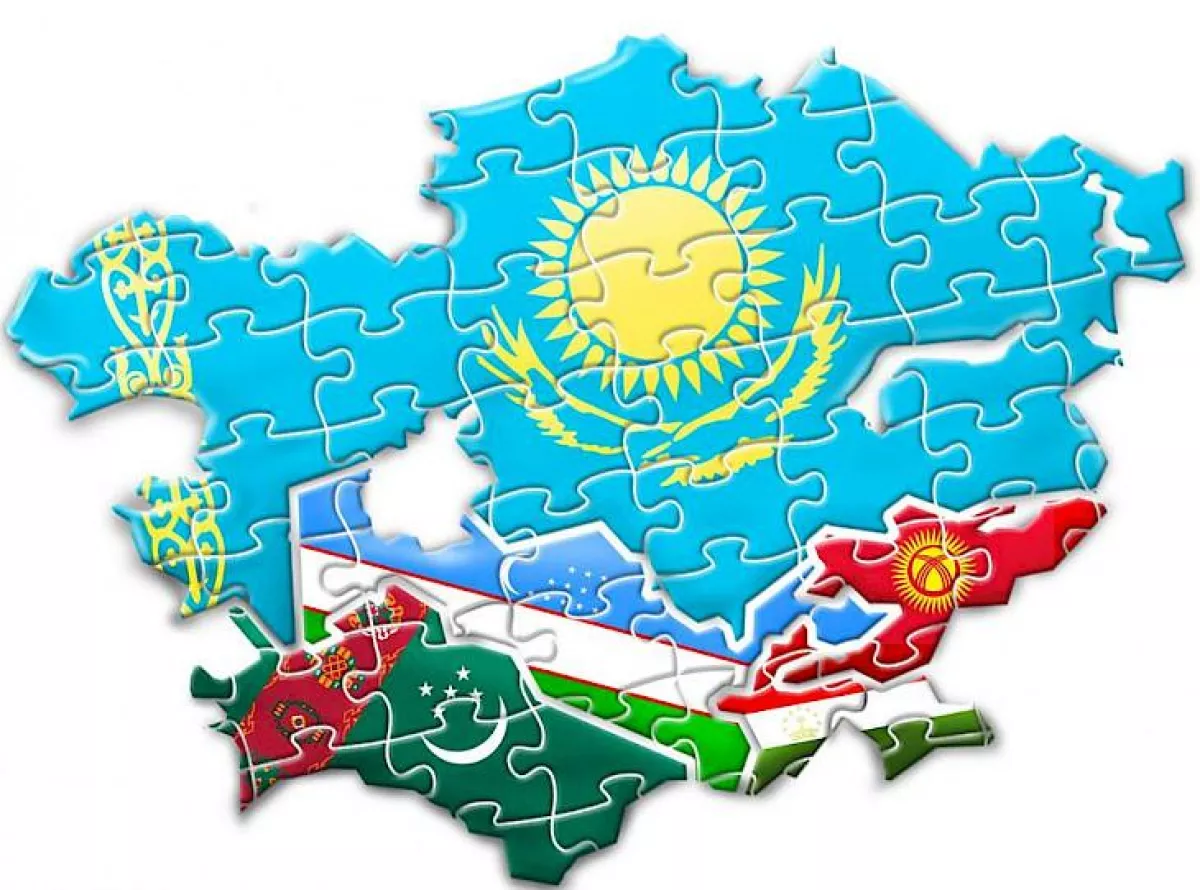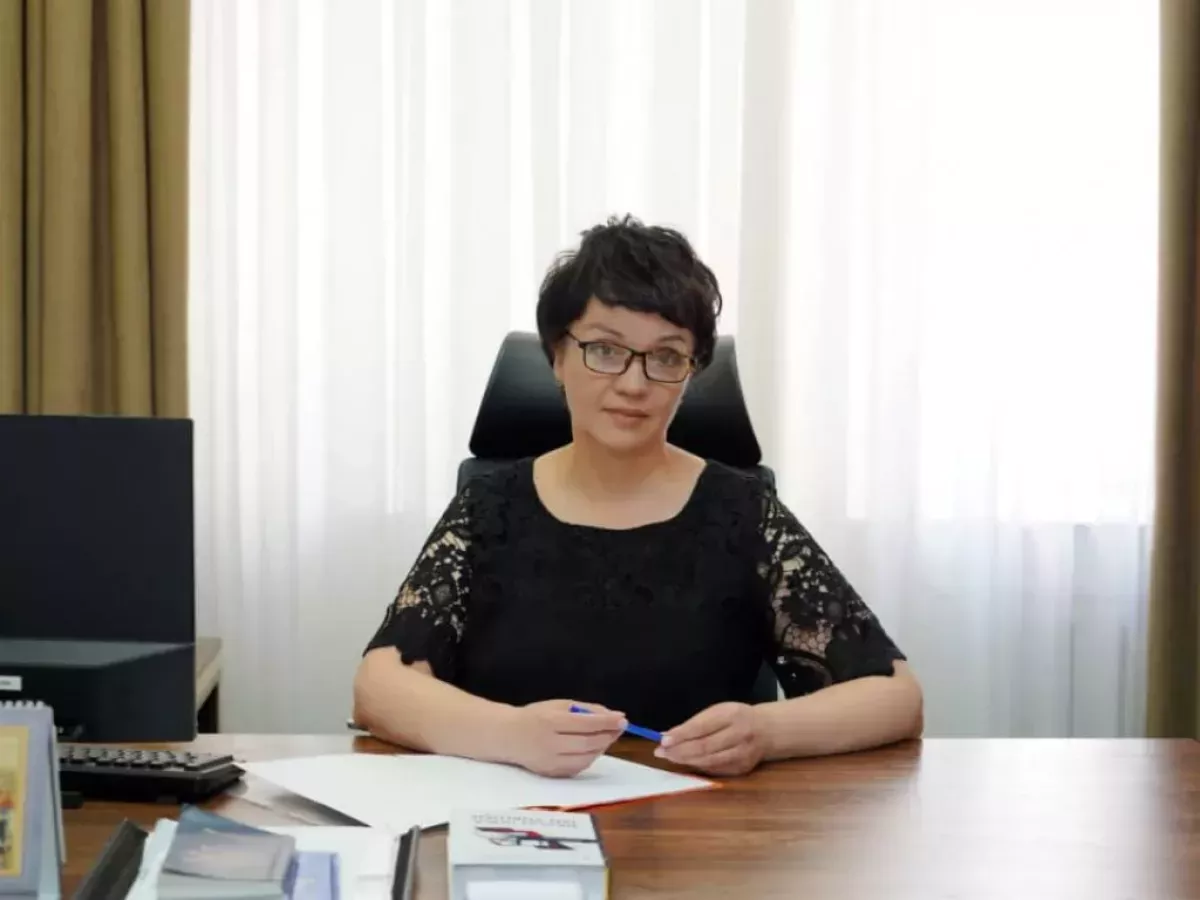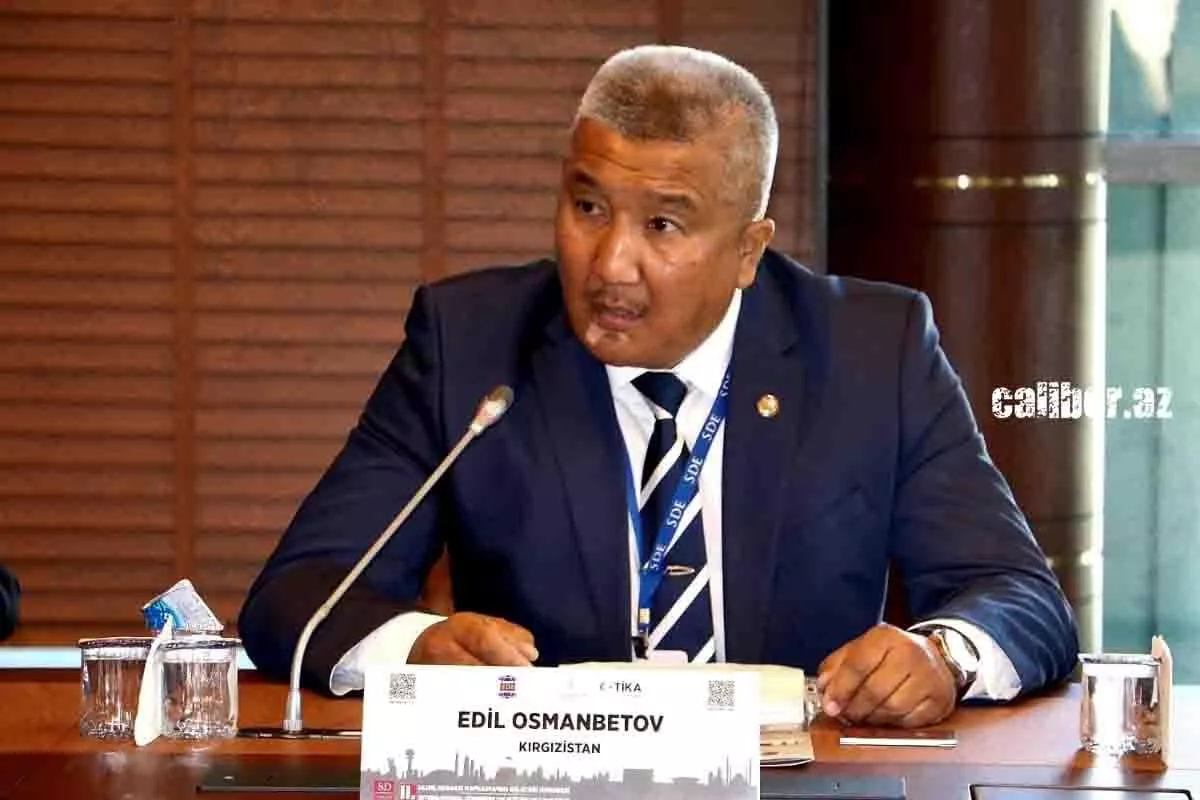C5+1: The renaissance of American influence in Central Asia Expert opinions on Caliber.Az
Recently, U.S. President Donald Trump met at the White House with the leaders of the five Central Asian countries — Kazakhstan, Kyrgyzstan, Tajikistan, Turkmenistan, and Uzbekistan. Trump and Presidents Kassym-Jomart Tokayev, Sadyr Japarov, Emomali Rahmon, Serdar Berdimuhamedow, and Shavkat Mirziyoyev held bilateral meetings in the Oval Office ahead of a working dinner. In his speech, Donald Trump criticised the policy of his predecessor, Joe Biden, accusing him of insufficient attention to the region, and emphasised that the current administration is making Central Asia a key U.S. foreign policy priority.
Highlighting the region’s wealth of natural resources, the American president stated that Central Asia possesses not only large reserves of oil and gas but also significant potential in rare earth elements: “These nations were once home to the ancient Silk Road connecting East and West. Tremendous, beautiful history. Today, their location in the heart of Eurasia gives them incredible importance and unbelievable potential.”
Trump also emphasised that the United States intends to strengthen its partnership with the Central Asian states and expand mutual investments. According to him, agreements in the field of rare earth resources already reached with Kazakhstan could serve as a model for similar arrangements with other countries in the region.
Many experts view the recent C5+1 summit in Washington as a clear demonstration of the growing U.S. interest in this strategically important region. But what do the Central Asian countries themselves think about the event? To answer this question, Caliber.Az turned to experts and political analysts from the region.

According to Kazakh political analyst and head of the research centre A+Analytics, Farhad Kasenov, the C5+1 summit was successful and yielded significant results.
"The outcome of the meeting can be described as productive. Above all, I believe the main result is a new era of cooperation between the United States and the Central Asian countries. The flagships of this interaction are Uzbekistan and Kazakhstan, and it concerns the diversification of trade, the expansion of technological capabilities, and the development of cooperation in energy and technological security," the expert said.
He noted that the agreements reached are mutually beneficial, something the leaders repeatedly emphasised during negotiations and working meetings.
"The first and perhaps the most important point on the agenda is economic cooperation. One of the most prominent examples is the launch of a new joint project between Astana and Washington to develop one of the world’s largest tungsten deposits, which had previously remained untapped. This metal is in high demand in modern technologies, and now, together with the American side, Kazakhstan is starting its industrial extraction. The deal is valued at $1.1 billion, with the American company receiving a 70% stake and the remaining share held by Kazakhstan’s state mining holding," the political analyst added.
He added that the project is being financed by the U.S. Export-Import Bank for more than $900 million. In addition, an agreement was reached to integrate Starlink satellite internet (part of Elon Musk’s group of companies) with Beeline, a telecommunications operator owned by Veon. This will allow Starlink’s services to be combined with Kazakhstan’s national telecom infrastructure.
"Furthermore, Kazakhstan signed agreements worth $17 billion in the fields of mineral resources, energy, and transportation. In particular, a memorandum of cooperation on critical minerals was signed between Kazakhstan’s Minister of Industry and the U.S. Secretary of Commerce," the expert noted.

For Uzbekistan, the summit was also significant — the country signed an $8 billion deal to purchase Boeing Dreamliner aircraft and announced its intention to invest up to $35 billion in the U.S. economy over the next three years and up to $100 billion over the next decade,” Kasenov emphasised.
In his view, Central Asia remains an important geopolitical partner for Washington: Kazakhstan is the world’s largest uranium producer, Uzbekistan has substantial gold reserves, and Turkmenistan is one of the leading suppliers of natural gas. At the same time, Kazakhstan and Tajikistan are opening new deposits, in the development of which American capital will play an active role.
"It is also worth highlighting the foreign policy dimension. Kazakhstan has joined the Abraham Accords — a document aimed at normalising diplomatic and economic relations, previously signed by the UAE, Morocco, and Israel. This initiative is actively promoted by the Trump administration, and Kazakhstan’s participation could be an important step in strengthening the country’s international standing," the political analyst added.
Farhad Kasenov also noted that the summit’s outcomes carry not only economic but strategic significance.
"The United States has reaffirmed its interest in peace and stability in Central Asia. We are witnessing a kind of renaissance of American influence, a return of the U.S. to the region through economic and political projects. This gives hope that Washington will actively participate in ensuring the territorial sovereignty and security of Central Asia," the expert concluded.

Meanwhile, Doctor of Historical Sciences and Professor of Political Science at the University of World Economy and Diplomacy in Tashkent, Uzbekistan, Ranokhon Tursunova, noted that 2025 has been full of international-level events.
"In the spring, Uzbekistan hosted the Central Asia–EU summit, in the summer Kazakhstan held the Central Asia–China summit, in the autumn Tajikistan hosted the Central Asia–Russia summit, and at the close of the year, on 6 November, the Central Asia–U.S. summit took place at the White House. The agenda of the recent meeting focused on expanding economic cooperation — particularly in raw materials and investment — and integrating the Central Asian countries into the global economy.
Key topics included support for the development of the Trans-Caspian (Middle) Corridor, directly affecting Turkmenistan’s interests as a transit hub, deepening cooperation in critical minerals, and ensuring the resilience of regional supply chains," the political analyst said.
According to her, during the summit, the United States confirmed its interest in strengthening cooperation with Central Asia in critical minerals and rare earth resources, opening up new prospects for Uzbekistan. Initiatives were announced to simplify trade, support investment links, and create platforms for joint projects. For Uzbekistan, this represents an opportunity to accelerate the attraction of American capital and technology and to access new markets.
"Overall, the summit signals the United States’ desire to strengthen ties with Central Asia as a strategic region, including as a means of balancing the influence of major powers. Uzbekistan gains an additional tool to reinforce its multi-vector foreign policy, using the format as a platform for dialogue and partnership. Moreover, for our country, the summit underscores the importance of furthering reforms, improving the investment climate, and enhancing transparency, which will increase trust among foreign partners.
It is worth noting that Uzbekistan already has a memorandum with the United States on critical minerals. In addition, the outcomes of the Uzbek president’s visit to the U.S. and the summit provide opportunities to attract American companies, technologies, and financing for infrastructure modernisation and the transition to green energy. Overall, Uzbekistan can strengthen its role as a transit corridor and a partner country in global mineral supply chains. Therefore, the recent C5+1 summit in the United States represents a significant diplomatic and economic step in U.S.–Central Asia relations and opens new opportunities for Uzbekistan," said Tursunova.

According to Kyrgyz political analyst and international relations expert Edil Osmonbetov, the meeting of Central Asian heads of state with the U.S. president in the C5+1 format was one of the most important events of 2025 for the entire region.
"This format is functional and highly significant. Initially, C5+1 was proposed by Japan back in 2004, but it was never fully implemented. The United States began actively using it from 2015, and today it has become an important platform for Washington’s engagement with Central Asian countries," he noted.
According to him, the summit’s particular significance lies in its confirmation of a regional approach to addressing shared challenges.
"Today, Central Asia has an almost unified agenda in terms of security, the economy, and the development of transit and transnational multimodal corridors that should extend to the South Caucasus and Afghanistan. In this respect, the Washington meeting carries substantial positive significance," the analyst emphasised.
He also noted that the venue itself — the White House — is symbolic: "If we recall 2020, when President Biden met with regional leaders on the sidelines of the UN General Assembly, the current meeting at the White House demonstrates a shift in the U.S. strategy towards Central Asia. Now this region is clearly in Washington’s focus."
Osmonbetov also drew attention to a statement by U.S. Secretary of State Marco Rubio, who acknowledged that the region had not received sufficient attention over the past decade: "He announced his intention to visit all Central Asian countries in 2026. This is a significant step, and it is quite possible that the President of the United States himself will follow. In 34 years of independence, no American president has visited Central Asia, and if this happens, it will be a historic event."
According to the political analyst, visits by high-ranking American officials and the updating of the U.S.–Central Asia agenda directly influence the formation of a new strategic approach from Washington.
"This is not just about political and economic cooperation, but also concerns issues related to Afghanistan, rare earth minerals, and the region’s energy resources. President Trump clearly stated that Central Asia must maintain its sovereignty and independence, which is undoubtedly an important signal for all regional countries," Osmonbetov emphasised.
The expert also noted that Central Asia occupies a unique geopolitical position — at the intersection of Russian and Chinese interests: "This makes the region a key element of global politics. We are on the threshold of major geopolitical changes, and Central Asia’s role in this process will only continue to grow."

Tajik political analyst Eraj Alimov, in turn, noted that the key directions of cooperation between the United States and Tajikistan, as well as prospects for their expansion, were outlined by President Emomali Rahmon during his speech in Washington.
"In his address, the head of state paid special attention to economic interaction, increasing trade turnover, and attracting investment into promising sectors of the national economy. These areas are becoming particularly significant in the context of Central Asia’s growing role in the global economy," Alimov said.
According to him, Emomali Rahmon highlighted the importance of developing the renewable energy sector, given Tajikistan’s substantial hydropower resources and advantageous geographical location.
"The head of state emphasised the country’s readiness to further deepen cooperation in green energy, as well as in the transmission of electricity to neighbouring countries. In this regard, Tajikistan expressed interest in strengthening partnerships with international organisations and investors," the political analyst explained.
He added that the president also highlighted the extraction and processing of minerals as one of the priority and promising directions for economic development.
"Investments in the mineral and raw materials sector open broad opportunities for industrial growth and diversification of the national economy," Alimov emphasised.
The expert noted that President Rahmon envisions Tajikistan as an active participant in building sustainable production and trade chains.
"Given its economic potential and strategic location, Tajikistan is capable of playing a significant role in strengthening regional cooperation and developing new forms of partnership with foreign countries, especially with the United States," concluded Alimov.








